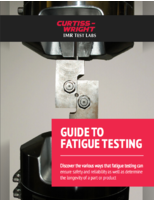AIA Speaks to Importance of Hochberg's Ex-Im nomination.
Press Release Summary:
In her statement on upcoming debate and vote for Fred P. Hochberg's nomination to second term as head of Export-Import Bank of the United States (Ex-Im), AIA's Marion C. Blakey cited Ex-Im's important role in helping American companies compete on level playing field and financing that can mean difference between growth or layoffs. Blakey said derailment of Hochberg's nomination would deny Ex-Im's Board of Directors quorum it needs to approve new loan guarantees and support American jobs.
Original Press Release:
AIA: Don't Shackle American Exporters
Statement by Aerospace Industries Association President and CEO Marion C. Blakey on the upcoming debate and vote on the nomination of Fred P. Hochberg to a second term as head of the Export-Import Bank.
Arlington, Va. – Already, 130 days into what Politico has described as “The Sequester’s Slow Burn,” mandatory budget cuts are definitely impacting our nation’s defense and the companies that make America strong by selling products abroad.
This week, the Pentagon began furloughing 650,000 civilian employees. Defense readiness has already been affected, with reductions in Army training, Navy ship deployments and Air Force flying time. Currently 13 air squadrons sit idle. And as the Defense Department implements the sequestration budget cuts that are on top of the $487 billion in defense reductions required by the Budget Control Act of 2011, reduced spending on equipment purchases and research and development for new systems is being felt throughout the defense industrial supply chain.
Last month, the Aerospace Industries Association surveyed small and mid-sized aerospace and defense supplier companies and found that eighty-eight percent of them have been affected by budget cuts during the past two years. Sixty-two percent of the companies told us that the budget cuts have led to reduced production levels, sixty percent saw contract postponements and cancellations, and forty-nine percent had to institute hiring freezes with forty-five percent forced to lay off employees.
Many of these companies have responded to budget cuts by doing their best to diversify their business away from defense contract work to the commercial market, where there is more stability and earnings potential. In this regard, civil aviation and space exports may serve as a vital lifeline for the 30,000 companies that make up the defense supply chain and the thousands of workers who depend on this vital industry. At this critical time, with the painful effects of the sequester being felt across the country it is imperative we keep the Export-Import Bank of the United States open for business. Ex-Im, as it’s known, does what’s rare in government. It plays a vital role in helping American companies compete on a level playing field in the global marketplace, having supported 3,400 companies – big, medium and small – last year. And for aerospace companies already feeling the effects of the sequester, financing from Ex-Im can mean the difference between growth or layoffs.
The U.S. Senate is expected to vote very soon on the re-nomination of Fred Hochberg for a second four-year term as President and Chairman of the Ex-Im Bank. Under Chairman Hochberg’s leadership, the Bank has supported nearly one million jobs over the past four years. If the nomination is derailed by opponents of the Bank, the Bank’s Board of Directors would be denied the quorum it needs to approve new loan guarantees and support American jobs.
America’s commercial aerospace industry relies heavily on the Ex-Im Bank to fill gaps in private export financing at no cost to the taxpayer. In fact, the Bank makes money, contributing $1.6 billion to the Treasury over the past five years. Ex-Im Bank export credit support has helped U.S. companies compete successfully for major foreign sales of U.S. civilian aircraft and commercial satellites in recent years. And the biggest beneficiaries of these sales are small and mid-sized companies that supply major manufacturers with parts, systems and equipment. They benefit both from the initial sale to the Original Equipment Manufacturer (OEM) and even more so with aftermarket sales for maintenance, repair, and overhaul (MRO).
In the current sequestration environment, commercial export opportunities represent critical revenue diversification that many aerospace suppliers will need to survive. If they do not, the implications for America’s technological edge on the battlefield would be ominous.
While Ex-Im is prohibited from financing military equipment, it provides vital financing to many commercial exports. The Bank helps level the playing field for America’s aerospace manufacturers, who are competing with foreign companies backed by the low interest rates and deep coffers of other nations. These companies are a key part of our national and economic security. Fifty-nine other countries do not hesitate to aggressively use institutions similar to the Ex-Im Bank to compete in the global marketplace, and Ex-Im Bank support is the only way many U.S. aerospace manufacturers have a fair fight. If the Senate does not want to unilaterally disarm America’s exporters, it should act now to ensure the Bank continues to function with a quorum for reviewing and approving projects. Mr. Hochberg and his colleagues at the Ex-Im Bank have an important job to do, and we must ensure they are allowed to do it.




